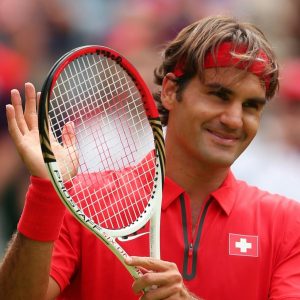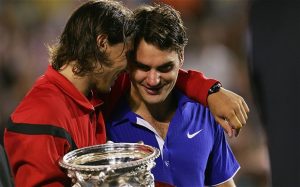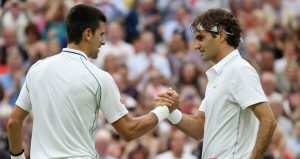
By Emilio Sánchez Vicario, CEO & Founder at Sánchez-Casal Academy.
#9 Respect your opponent. They have the same goals as you.
With 17 Grand Slams in his pocket, Roger Federer has lost multiple finals since 2008: to Nadal four times, once at the French Open, once at Wimbledon and once at the US Open; and to Djokovic, three times.
This amounts to more than ten Grand Slam finals lost – we can only imagine where he would be in the ATP ranking. However, today I’m not going to talk about the matches in particular, or about tactics, physical condition or mindset. Today I want to commend Roger Federer as a role model, as a player who respects his rivals when he is defeated.

Many times I have tried to put myself inside his head, and dig around to see what I can find. I already admired Federer when he started losing against Nadal, and won the French Open the same year that Rafa lost against Soderling. Then more defeats came against the player from Manacor, and then Djokovic appeared, bringing yet more setbacks. But he carried on, trying.
I don’t remember a single time that Federer did not respect one of his opponents, or when he did not understand and appreciate that his rivals also wanted the throne. Instead, thanks to them, he continued to improve. Innumerable occasions come to mind when, after he lost a match, the press would ask him if he was going to retire, and his answer was always the same: “If I compete to win, why would I retire?”
He changed coaches, improved his technique, changed his tactics to be more aggressive, improved his physical condition working in a different way, and faced his matches with a more ‘warrior’ mindset, with the sole purpose of competing – a highly admirable approach.
I don’t know if he will maintain his Grand Slam victory record for a long time, or if he will win another trophy and become unbeatable. I hope he manages to achieve it. But what is certain is that his legacy in tennis is outstanding. Technically, he has developed a classic, beautiful style of play that has challenged modern tennis, providing coaches with the opportunity to train by the book and in a more natural way. Tactically, he is has become highly strategic in maximizing his performance, playing more aggressively and a lot closer to the net than since he trained with Edberg. Physically he has been able to keep up his strength even when competing against the strongest athletes such as Nadal or Djokovic. Mentally, he has been able to keep calm in the face of defeat, believe in his options and above all, respect his opponent.

I would like to take this opportunity to share my admiration for Federer, and congratulate him for the positive message he sends out after his matches, both when he wins and when he loses. Just like other great players, this message has to be practiced and worked on – this is why I encourage trainers and parents to hold him up as a role model.
If we take pleasure not in victory itself, but in the competitiveness that leads to it and to defeating our rival with respect, we will be able to better understand our opponent’s shots, sense their tactics and their next moves, hold up in battle and evaluate their qualities to ensure that they cannot use them in key moments, when instead, we can utilize our own.

Yet tennis is an individual sport. If we only think of ourselves, we will be able to win occasionally, but we will never become one of the great players nor will we be able to enjoy the ride as much as Federer does thanks to his respect for his rivals. I want to emphasize that his legendary status in tennis and the admiration of the public has increased with his defeats over recent years, even more so than when he won on a regular basis. I’m sure that if we conducted a survey, his personal values would come out top of the list of reasons why people admire him.
Emilio Sánchez Vicario
CEO & Founder at Sánchez-Casal Academy















